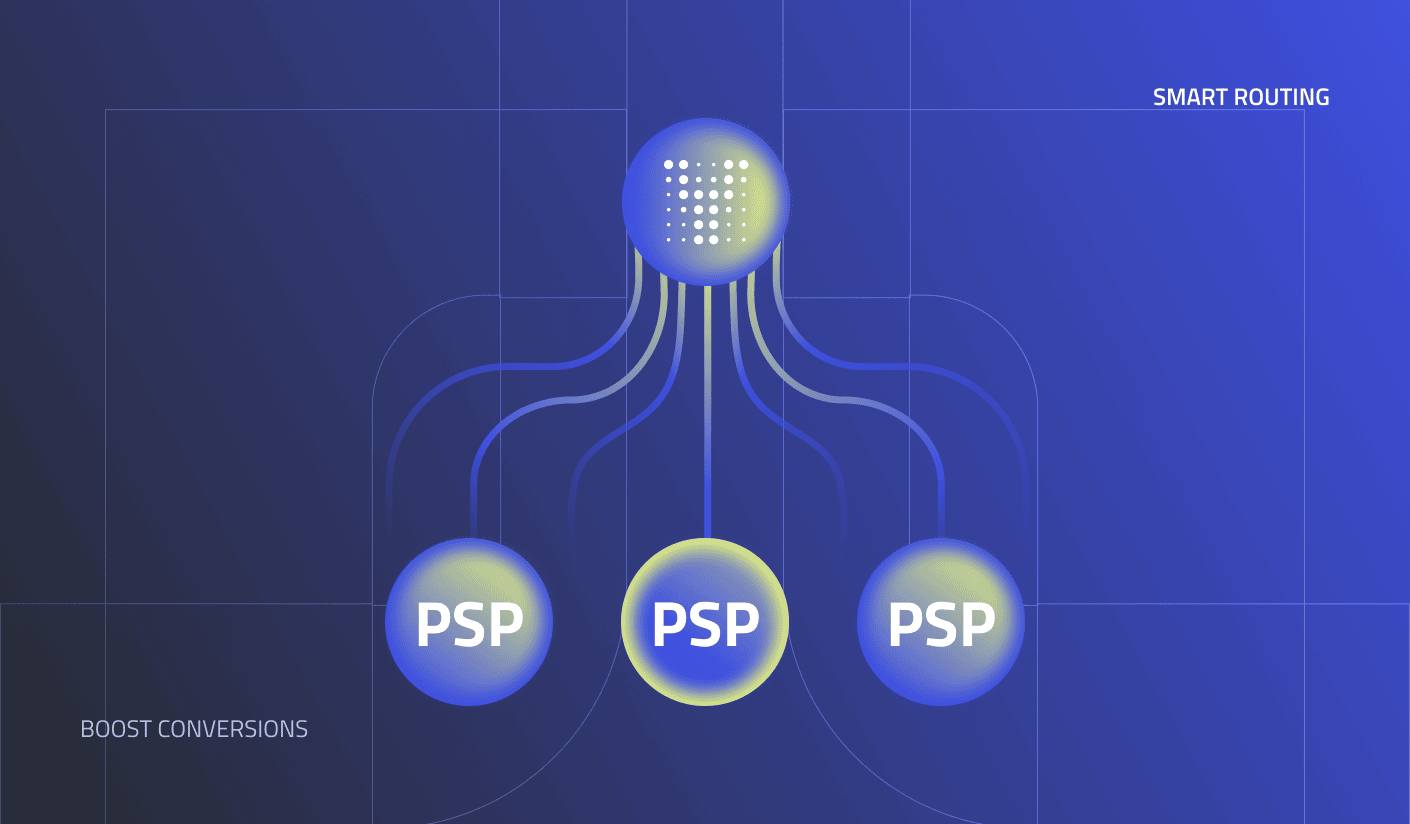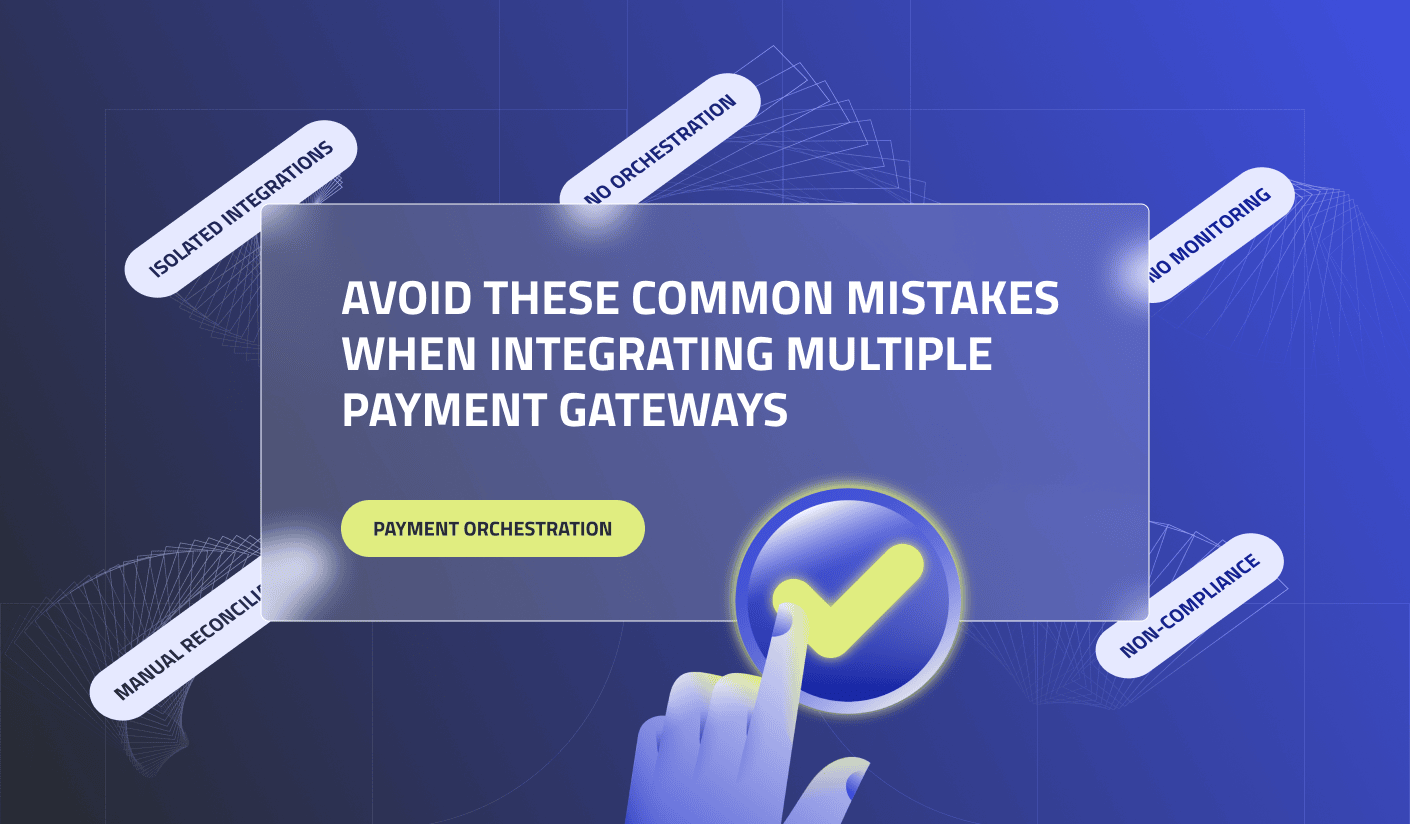Choosing the Right PSP Fallback and Routing Logic to Increase Conversions

When customers try to pay, every second matters. A failed transaction can mean a lost sale, a frustrated customer, and even churn. That’s why merchants operating at scale need to think beyond a single payment service provider (PSP). By implementing fallback strategies and intelligent routing logic, businesses can ensure transactions go through smoothly – even if one provider is down or underperforming. This page explores how PSP fallback and routing logic work, why they matter for conversions, and how global merchants can design a strategy that maximizes revenue.
What is PSP fallback and why is it critical for conversions?
PSP fallback is the ability to redirect a payment transaction to an alternative provider when the primary one fails or underperforms. Without this mechanism, merchants risk high decline rates and outages that translate into lost revenue. A robust fallback strategy acts as a safety net, ensuring transactions continue even during provider downtime or regional disruptions.
How does smart routing optimize payment success rates?
Smart routing dynamically selects the best payment provider for each transaction based on factors like geography, payment method, authorization performance, or cost. Instead of relying on one static connection, merchants can route each payment to the PSP most likely to approve it. For instance, local acquiring in Brazil often delivers higher approval rates compared to routing everything cross-border. By applying real-time logic, merchants unlock higher conversions and lower costs simultaneously.
What are the risks of relying on a single PSP?
Relying on a single PSP creates a single point of failure. If that provider faces technical downtime or higher-than-average decline rates, the merchant has no backup. This dependency not only impacts sales but also weakens negotiating power on fees and service levels. With multiple PSPs and a fallback mechanism, businesses reduce risk and increase flexibility.
How to design a PSP fallback strategy that minimizes revenue loss?
A well-designed fallback strategy includes:
- Priority rules: defining the primary, secondary, and tertiary PSPs per region or method.
- Dynamic triggers: setting thresholds (e.g., decline spikes above 10%) that automatically trigger fallback.
- Retry logic: allowing a failed transaction to be retried with another PSP in milliseconds.
Enterprises can layer these strategies with real-time monitoring tools to adjust routing instantly, reducing declines without adding friction for the customer.
How does routing logic vary across markets and payment methods?
Different markets have distinct payment ecosystems. For example:
- In Mexico, debit card declines may be reduced by routing through local acquirers.
- In Europe, PSD2 regulations make fallback logic essential to comply with authentication rules.
- In Asia, wallets and alternative methods dominate, so routing must account for method availability and cost.
By tailoring routing strategies per market, merchants can align with consumer preferences while keeping authorization rates high.
What role does AI play in modern payment routing?
AI and machine learning can detect patterns in decline reasons, card BINs, or issuer behavior. Instead of waiting for historical reports, AI-driven routing adapts in real time—redirecting payments to providers with the highest probability of success. This proactive approach not only boosts conversions but also prevents fraud and operational inefficiencies.
How do fallback and routing strategies impact customer experience?
Customers don’t care which PSP processes their transaction—they just want it to work. Smart fallback ensures payments succeed without additional steps for the shopper. A seamless checkout with invisible failover keeps customer trust intact, reduces cart abandonment, and increases loyalty.
What KPIs should merchants track to measure success?
Key metrics include:
- Authorization rate uplift: % improvement after enabling fallback and routing.
- Transaction recovery rate: share of previously declined payments successfully routed elsewhere.
- Cost per transaction: ensuring routing logic optimizes not only approvals but also fees.
- Downtime incidents avoided: number of outages mitigated through fallback.
By tracking these, merchants can quantify the direct revenue impact of smarter routing.
How does Yuno help enterprises implement PSP fallback and routing logic?
Yuno enables merchants to connect with 300+ global providers through a single API, activating fallback and smart routing automatically. With features like real-time monitoring, dynamic routing conditions, and reconciliation dashboards, Yuno allows payment teams to optimize conversion without heavy technical overhead. For enterprises expanding into new regions, this flexibility means scaling faster and reducing risk.














